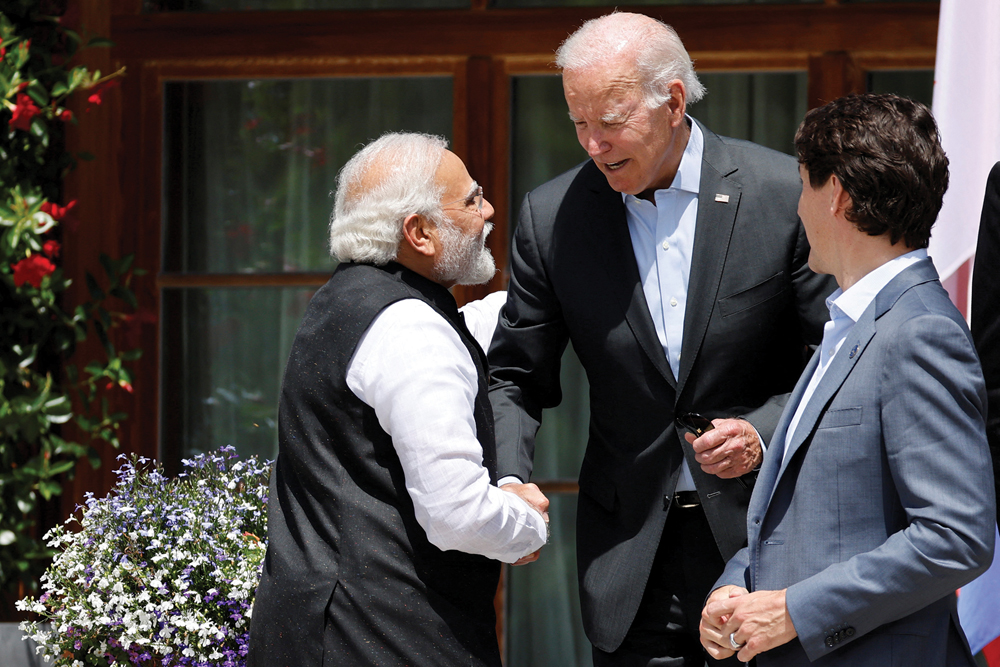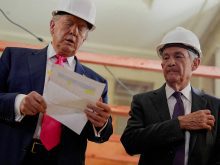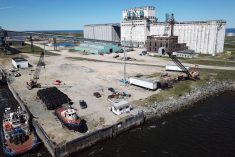Don’t expect a return to normal geopolitical conditions, at least not if the past several decades can be considered normal.
That was Janice Gross Stein’s message March 8 in an opening address to the Canadian Crops Convention in Ottawa. The noted political scientist and founding director of the Munk School of Global Affairs & Public Policy at the University of Toronto said the era of “globalization on steroids” is firmly over.
“Great power competition is back. It’s back with a vengeance,” she told conference attendees. “There’s at least a decade ahead of us before I think the world finds its feet again, as great powers find their feet again, and learn to compete — but compete in ways that we have rules of road.”
Read Also

Students push for Manitoba road upgrades
Manitoba’s lack of higher-rated RTAC roads creates irritating highway detours and weight restrictions for farmers, University of Manitoba students told KAP.
Why it matters: Many pine for a return to normal after the pandemic, but it may be a vain hope as the world changes.
In historical perspective, she compared it to the postwar years when the Soviet Union and Western powers learned to live together. The 1950s and 1960s were rocky, but relations got smoother as the rules were ironed out.
“I say I am a long-term optimist, but I am predicting a lot of turbulence in the next 10 years,” Gross Stein said.
Shifting world
Since the 1990s the world has gotten used to ever-increasing globalization through trade agreements. Now the trends are running in a different direction. Global trade has been falling, in fits and starts, since the Global Financial Crisis of 2008.
Farmers can rely on two key international bodies. There’s the World Trade Organization, which sets the rules for trade and mediates disputes, and there’s the Codex Alimentarius, a collection of internationally recognized standards published by the Food and Agriculture Organization of the United nations. Both are in disarray.
“Both are dysfunctional right now,” Gross Stein said. “The WTO is paralyzed. The Trump administration refused to appoint judges for tribunals and there’s no dispute resolution mechanism. And Codex is paralyzed right now by political disputes. In this world of crumbling international regulation, where is it moving? To regions.”
That’s why so many national governments have concentrated their recent efforts on bilateral and regional trade pacts. Canada is no exception. It has signed significant bilateral and regional trade deals and continues to pursue more.
“Markets are regionalizing,” Gross Stein said. “You’re all global exporters. But now you’re exporting into regional markets. That’s the shift.”
It’s in Canada’s national interest to play the ground game, she said. That means boots on the ground, and not just political leaders or government officials. U.S. industry groups are meeting with key markets every two weeks, she noted.
“It’s all about showing up,” she said. “Show up once, then again, and then again, and then you have to show up again. It’s the single most important prerequisite of success.”
Canada’s top agriculture trade partners are the U.S., Mexico, China and Japan, Gross Stein noted. The Indo-Pacific region is a crucial area for future growth because it comprises young and dynamic countries like Malaysia, the Philippines and India.
But the major institution under construction in the region is the Indo-Pacific Economic Framework or IPEF. It’s often overlooked because it’s not a trade deal, it’s a standards setting body. That’s precisely why engaging with it is so important, said Gross Stein.
“If IPEF isn’t in your sights, you’re missing the standard-setting body that’s going to determine the standards for everything that moves into the Indo-Pacific region. Those standards are very important.
“China uses safety. They never talk about tariffs or political issues when they deny market access. They always focus on standards and health and safety. I don’t need to tell canola growers that.”
She also noted the Indo-Pacific is “code” and was first used by the late Shinzo Abe, former prime minister of Japan and victim of a political assassination in summer 2022.
“Why? Why the Indo-Pacific? Because he wanted a region over China, one broadened to include India,” she said. “All the institutions that are being stood up now do not include China. We are drawing lines. The world is drawing lines.”
Double down
In this fast-changing trade environment, Canada’s farm groups must continue what they’ve been doing, but do more of it.
“You need to double down on supporting your sectoral councils,” she said. “You need to give them the muscle they need to do their work and build up their expertise on these markets. They can work with government. I know how frustrating this can be to accomplish, but we are growing our presence in the Indo-Pacific.”
Gross Stein also noted the federal government is taking action. It has established a trade hub in Singapore and she’s been told to expect an agri-food and agri-technical hub based on a similar model.
“At this point, what they’re discussing is where,” she said.
They’ve also begun to engage the U.S. government, hoping to find ground for a common front on shared issues.
“If we co-ordinate with the U.S., we can punch well above our weight,” Gross Stein said, adding the government will invest in two ways; directly and partnering with sectoral groups.
“This is an opportunity waiting for you to take advantage of it,” she said. “The government is all in on this, and it’s bipartisan, by the way. They next government won’t be any different, because this is where the growth is.”
















